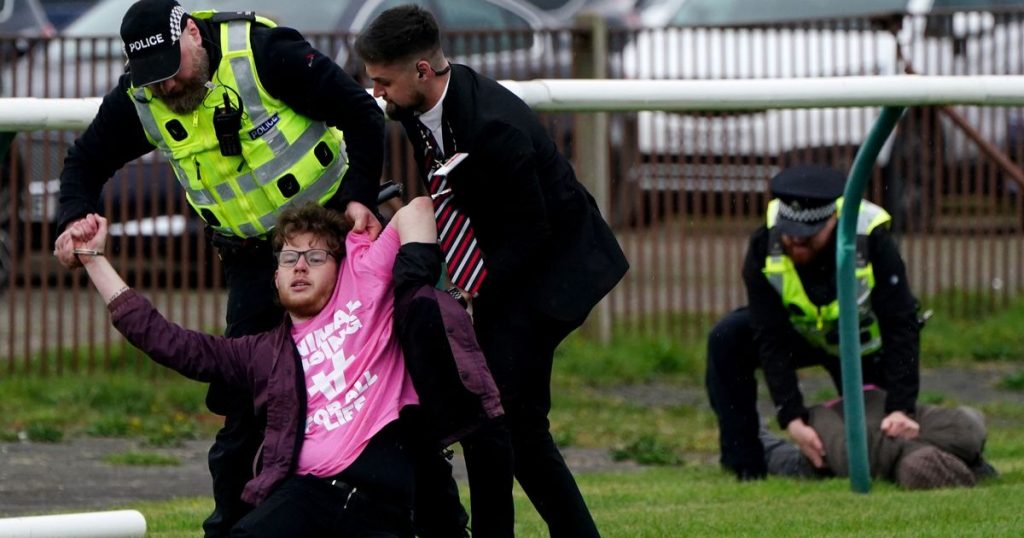Animal rights activists caused a disruption at the Grand National last year, leading to 100 arrests and a 14-minute delay in the race. In response, undercover police officers will be deployed this year to prevent any protests at the event. Special plain-clothes experts will analyze crowd behavior to ensure the safety of participants and racegoers. Despite the protest organizers, Animal Rising, stating that they have no plans to repeat the disruption, the police are taking precautions to avoid any potential disturbances.
The Grand National organizers have made changes to the race format this year, reducing the field from 40 to 34 runners and adjusting the run-up to the first fence by 60 yards. The start time has also been pushed forward by more than an hour. Race officials have stated that last year’s protest had no influence on these adjustments and that safety remains a top priority at the event. Animal Rising has expressed doubt about the effectiveness of disrupting races as a means to end horse racing, emphasizing a focus on peaceful advocacy practices instead. Over 150,000 attendees are expected to participate in the three-day festival.
The deployment of armed officers and plain-clothes experts at the Grand National aims to prevent any potential disruptions or antisocial behavior. Behavioral detection specialists will identify individuals whose conduct suggests they are not there for enjoyment or who pose a threat. These measures are part of the police’s commitment to ensuring a safe and secure environment for all participants and spectators. The decision to increase security at the event highlights the importance of maintaining order and minimizing risks at large-scale gatherings.
Animal rights activists have previously targeted horse racing events to raise awareness about animal welfare issues in the industry. However, there is debate within the activist community about the most effective strategies to promote change. While some advocate for peaceful protests and advocacy work, others believe that disrupting races may not be the most impactful approach. The Grand National, as one of the world’s most renowned steeplechases, attracts significant attention and offers a platform for discussions about animal rights and welfare in the sport.
Changes to the race format and increased security measures at the Grand National demonstrate a commitment to safety and order at the event. The organizers are responding to previous disruptions by implementing proactive strategies to prevent any potential protests or disturbances. By reducing the number of runners and adjusting the start time, the focus remains on ensuring the well-being of horses and jockeys. While animal rights activists have raised concerns about the treatment of horses in racing, the debate continues about the most effective ways to advocate for change within the industry.
Overall, the Grand National presents a complex and challenging environment where competing interests and values intersect. As animal rights activists aim to raise awareness about animal welfare issues in horse racing, race organizers prioritize safety and adherence to regulations. The dynamics between these stakeholders underscore the ongoing debates and tensions within the industry. By implementing security measures and making adjustments to the race format, the Grand National aims to balance the interests of all parties involved while maintaining the integrity and tradition of the prestigious event.


